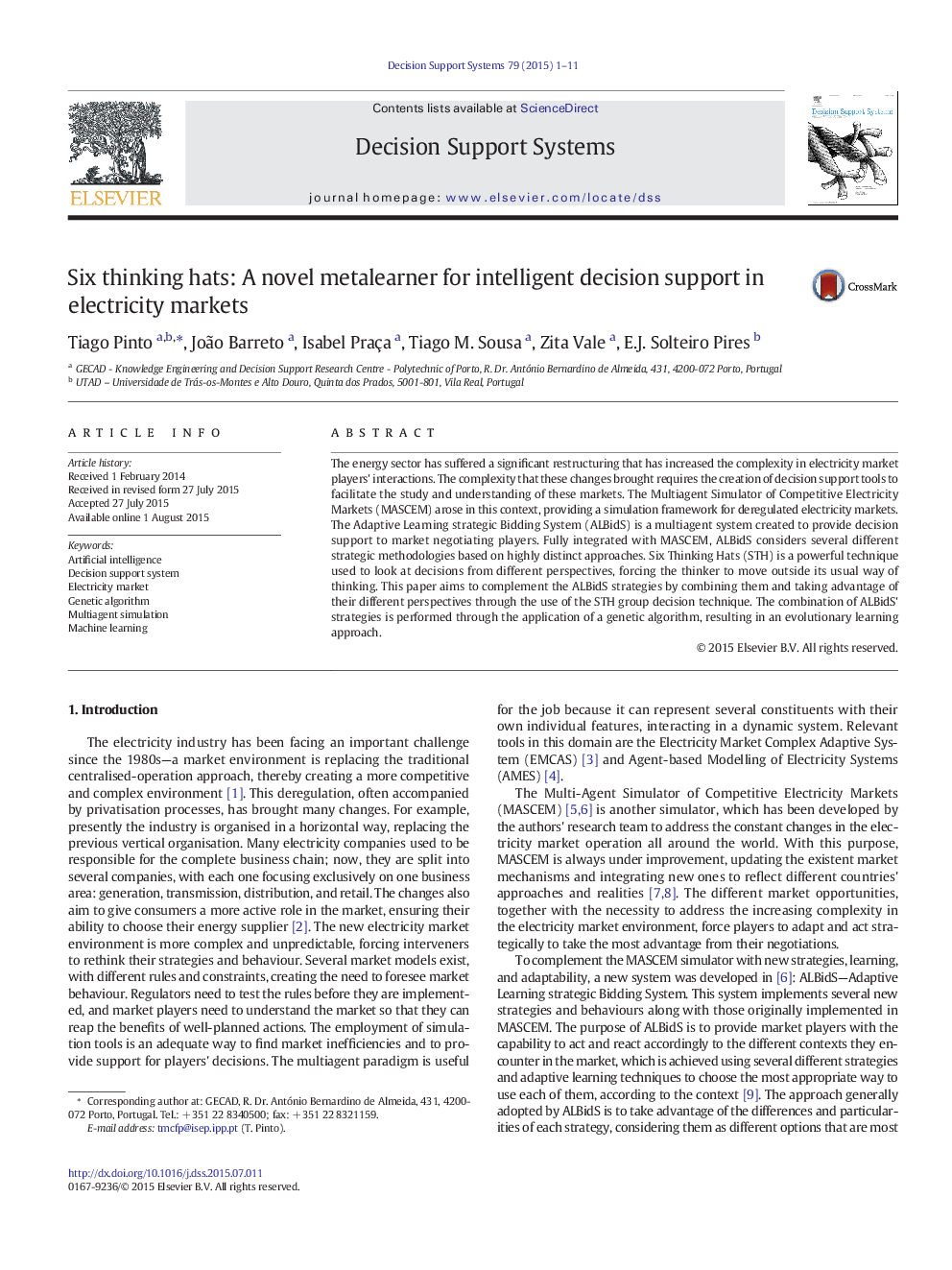ترجمه فارسی عنوان مقاله
شش کلاه تفکر: یک متا یادگیرنده رمان برای پشتیبانی تصمیم گیری هوشمند در بازار برق
عنوان انگلیسی
Six thinking hats: A novel metalearner for intelligent decision support in electricity markets
| کد مقاله | سال انتشار | تعداد صفحات مقاله انگلیسی |
|---|---|---|
| 41340 | 2015 | 11 صفحه PDF |
منبع

Publisher : Elsevier - Science Direct (الزویر - ساینس دایرکت)
Journal : Decision Support Systems, Volume 79, November 2015, Pages 1–11
ترجمه کلمات کلیدی
هوش مصنوعی - سیستم پشتیبانی تصمیم گیری - بازار برق - الگوریتم ژنتیک - شبیه سازی چندعاملی - فراگیری ماشین
کلمات کلیدی انگلیسی
Artificial intelligence; Decision support system; Electricity market; Genetic algorithm; Multiagent simulation; Machine learning

